Climate change summit: Global rallies demand action
- Published
- comments
The BBC's Laura Westbrook reports
Street protests demanding urgent action on climate change have attracted hundreds of thousands of marchers in more than 2,000 locations worldwide.
The People's Climate March is campaigning for curbs on carbon emissions, ahead of the UN climate summit in New York next week.
In Manhattan, organisers said some 310,000 people joined a march that was also attended by UN chief Ban Ki-moon.
Earlier, huge demonstrations took place in Australia and Europe.
"This is the planet where our subsequent generations will live," Mr Ban told reporters. "There is no 'Plan B' because we do not have 'Planet B'."
The UN Secretary General was accompanied by primatologist Jane Goodall and the French Ecology Minister, Segolene Royal.
New York hosted the largest of Sunday's protests, drawing more than half of the 600,000 marchers estimated by organisers to have taken part in rallies around the world.
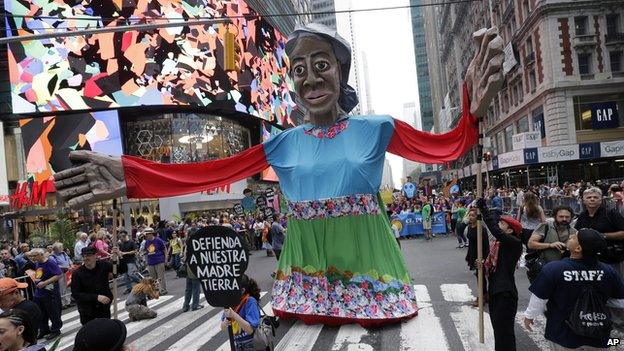
The protesters in New York used outsized floats to convey their message
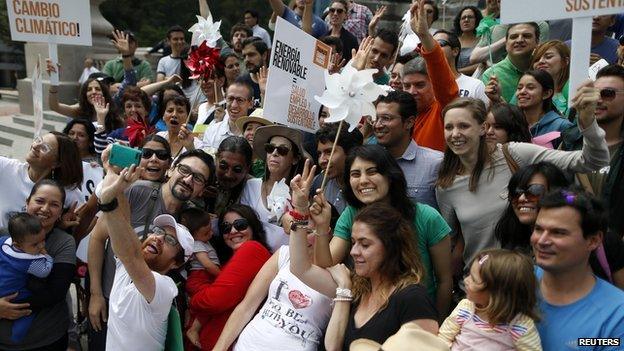
A group of marchers in Mexico City pose for a 'selfie'
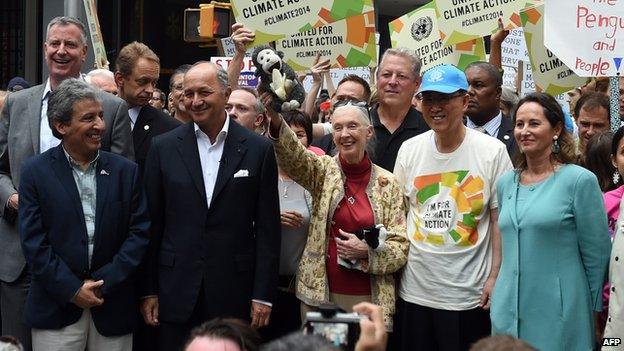
In Manhattan, Ban Ki-moon (in blue hat) was flanked by primatologist Jane Goodall (to his right) and French ecology minister Segolene Royal
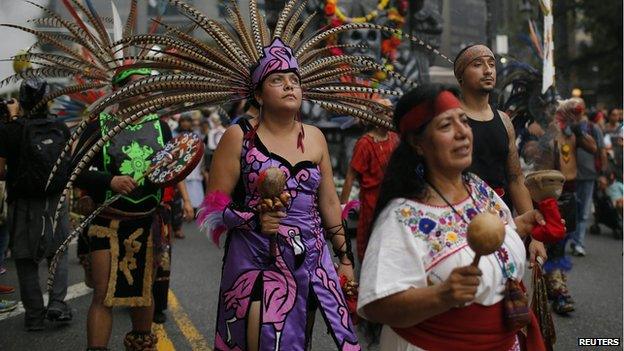
Many of the marchers in New York wore costumes associated with indigenous people
Manhattan echoed to the sound of chants, horns and drums as the colourful protest progressed through the streets.
Organisers of the Manhattan event said it surpassed the largest previous protest on climate change.
They said the massive mobilisation was aimed at transforming climate change "from an environmental concern to an everybody issue".
Business leaders, environmentalists and celebrities joined the demonstration.
Hollywood actor Leonardo DiCaprio also took part, having been appointed as a UN representative on climate change last week.

Analysis: Roger Harrabin, BBC Environment analyst
Another protest, another climate conference - will this time be any different?
Well, the marches brought more people on to the streets than ever before, partly thanks to the organisational power of the e-campaign group Avaaz.
And the climate talks will also be influenced by technology, as it was reported this week that the sun and wind can often generate power as cheaply as gas in the home of fossil fuels, Texas.
Certainly the UN's Secretary General, Ban Ki Moon, hopes that he can make a fresh start in the endless blame-your-neighbour round of climate talks.
Next year world leaders are due to show up in Paris to settle a global climate deal based not on a bitterly-contested chiselling negotiation in the middle of the night, but on open co-operative offers of action to tackle a shared problem.
Mr Ban has invited leaders to New York to make their offers public. Some small nations will doubtless make new contributions to the carbon contraction effort as they realise the vulnerability of their own economies to a hotter world.
But some big players may continue the game of climate poker, holding back their offers until they see what else is on the table.
So there is no guarantee that Ban's idea will work - but at least for weary climate politics watchers it will be a change.

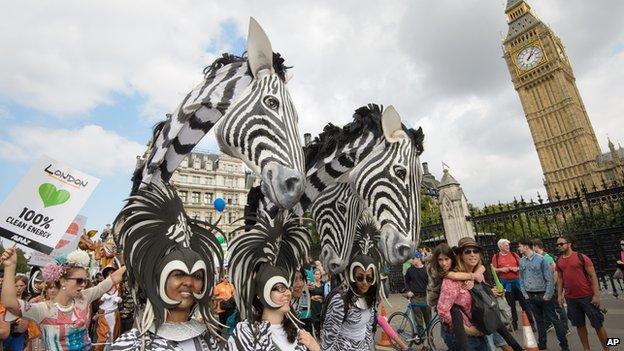
Tens of thousands of people - some of them dressed as animals - also marched in London
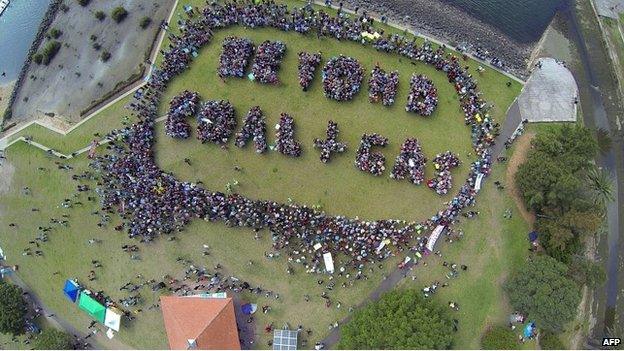
An image captured from a drone shows protesters in Sydney forming the words "Beyond Coal + Gas"
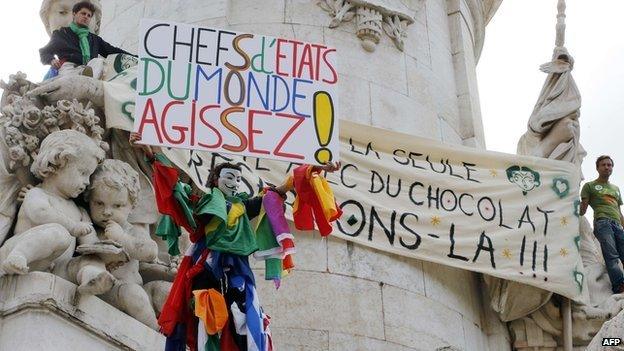
A masked protester joins the demonstration in Paris
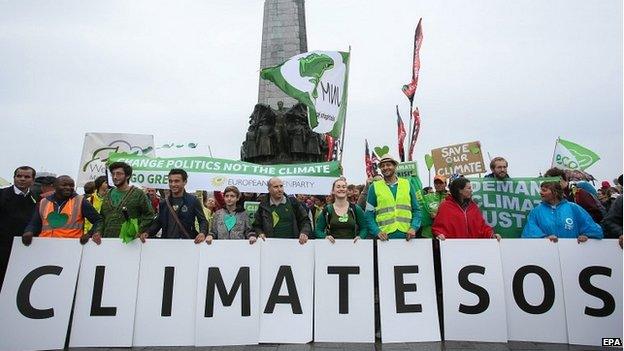
Protests have been held in about 160 countries around the world
The New York rally was part of a global protest that included events in 156 countries - Afghanistan, the UK, Italy and Brazil among them.
In London, the march attracted an estimated 40,000 people, including actress Emma Thompson who likened the threat from climate change to a Martian invasion
Some 30,000 people marched in Melbourne, Australia. Demonstrators urged Prime Minister Tony Abbott to take action, citing fears that climate change could lead to more bushfires and droughts
Organisers said more than 25,000 marched in Paris
About 15,000 people marched in Berlin. Organisers urged world leaders to recognise climate change as a pressing problem
In Rio de Janeiro, some 5,000 marchers turned out. Environmental slogans and a green heart were projected onto the famed statue of Christ the Redeemer, overlooking the city
Smaller protests - attracting numbers in the hundreds or low thousands - were also seen in cities such as Bogota, Barcelona, Jakarta and Delhi
On Tuesday, the UN will host a climate summit at its headquarters in New York with 125 heads of state and government - the first such gathering since the unsuccessful climate conference in Copenhagen in 2009.
Mr Ban hopes leaders can make progress on a universal agreement to be signed by all nations at the end of 2015.
- Published21 September 2014
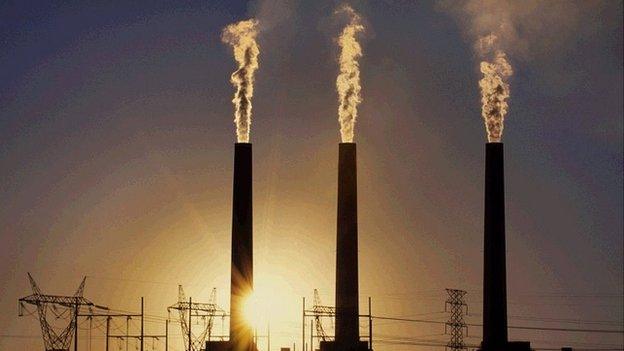
- Published16 September 2014
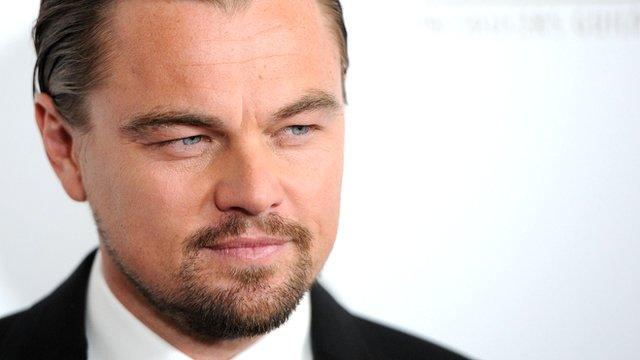
- Published31 March 2014
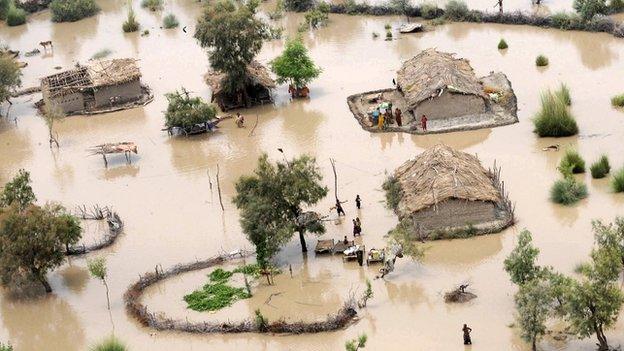
- Published31 March 2014
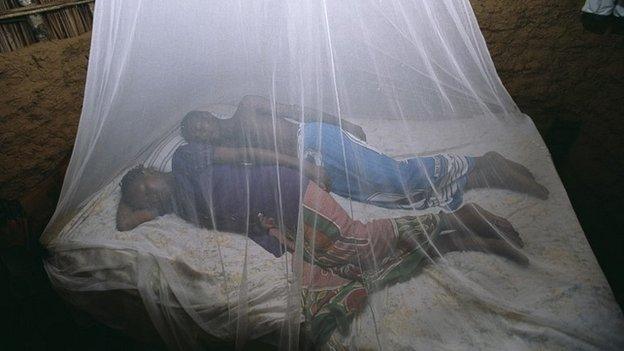
- Published13 April 2014